Everything you need to know about summer’s favorite fruit…blueberries! Including types of blueberries, blueberry seasonality, health benefits of blueberries, and storage tips.
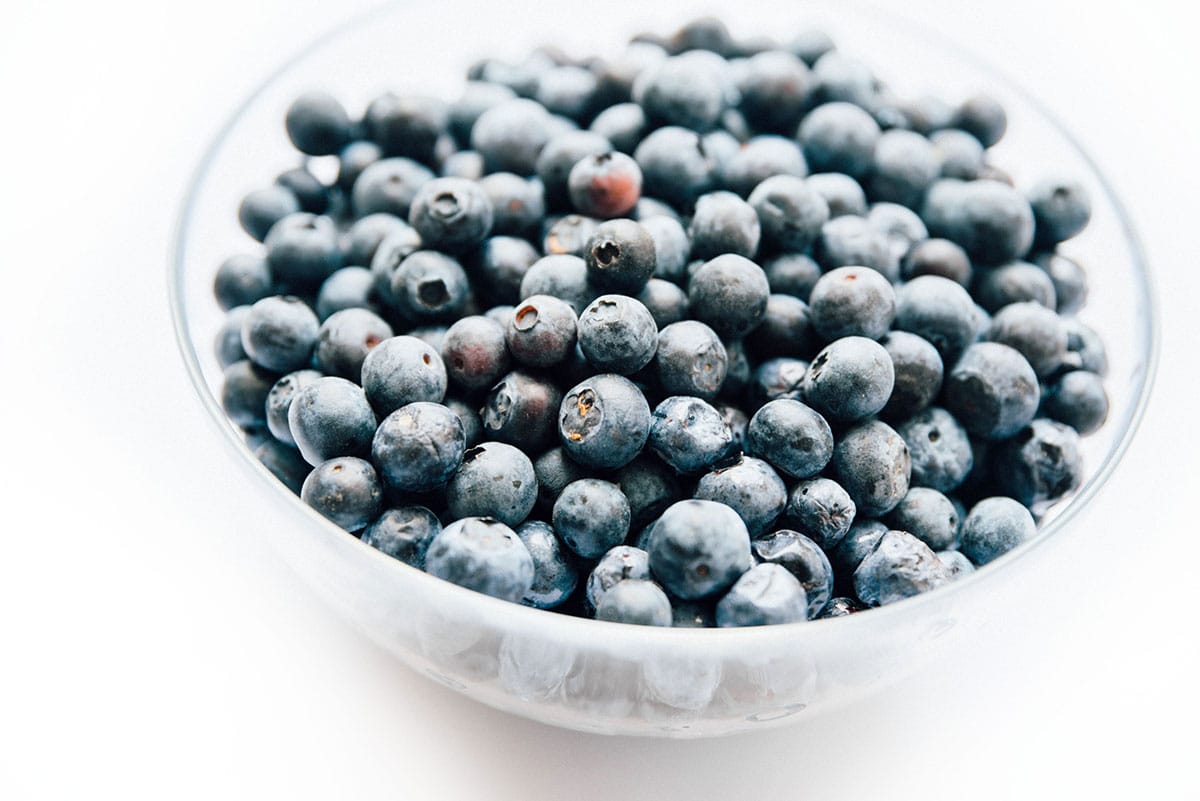
I decided on blueberries for this spotlight ingredient, not only because blueberries = summertime and sunshine, but because I read an interesting blurb about them in Food and Nutrition magazine.
In it, they reported the results of a placebo-controlled trial where women with high blood pressure were randomly assigned to consume either freeze-dried blueberry powder or a placebo powder. After 2 months, the women who consumed the blueberry powder had significantly lower blood pressure and significantly higher nitric oxide levels compared to when they began. No change was seen in the placebo group.
And what does all this gibberish mean? Higher nitric oxide = dilated blood vessels = less pressure on walls of blood vessels = good!
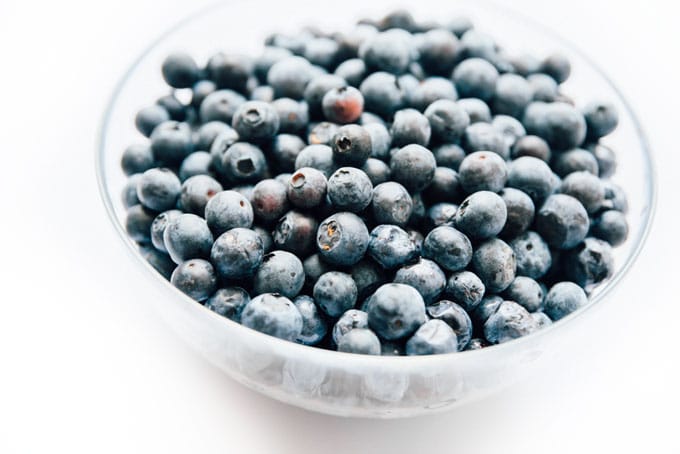
What kind of fruit are blueberries?
Blueberries are one of only three berries native to North America. They are blueberries, cranberries, and Concord grapes.
So what is a berry? It’s a fleshy fruit produced from a single flower with no barrier between seed and pulp. That’s the botanical definition anywho.
And interestingly enough, by this definition, strawberries are not berries, while bananas are. Things that make ya go hmmm.
When are blueberries in season?
In the Northern Hemisphere, blueberries are typically in season from late spring to mid-summer, depending on the variety and location, with peak season usually in July.
How to choose the perfect blueberries
When selecting blueberries, choose plump, firm berries with a dusty blue color and a silvery sheen, and avoid any with soft spots, bruises, or mold.
How Many Ounces in a Pint of Blueberries?
According to the USDA, the average pint of blueberries weighs 296g or about 10 ½ ounces. This conflicts with most cooking sites which use 12 ounces to a pint. So, we headed to the fridge and put them on the kitchen scale. We got 11 ½ ounces. Clearly there is some variation between blueberries. A pint of larger blueberries will likely weigh slightly less than their smaller cousins simply because there will be more space between berries in the measuring cup.
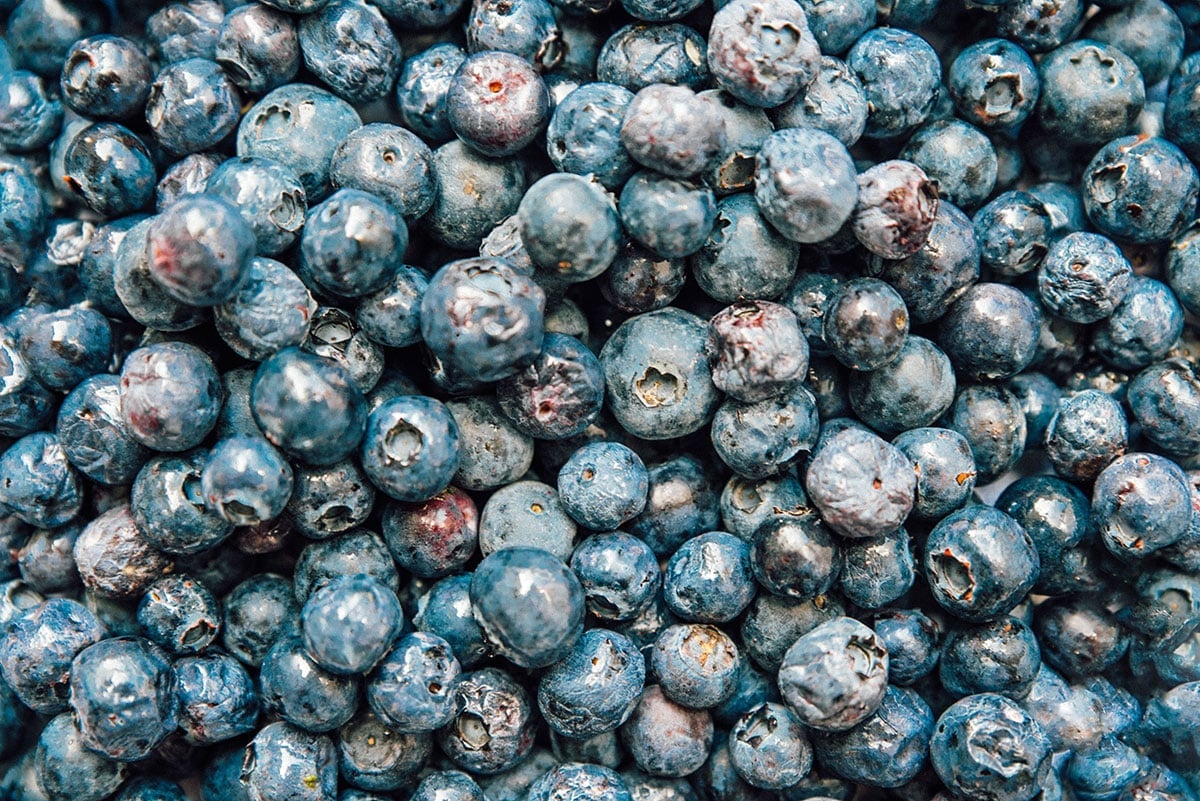
Types of blueberries
There aren’t actually a wide variety of blueberries available to the general consumer. Most types of blueberries that you’ll buy at the grocery are from the high bush plant. There are also low bush plants, which are the wild blueberries you may find carpeting patches of ground in the woods.
How to Store Blueberries
Store Fresh Blueberries: Store blueberries in the pint container they came in! Wash just before using, but not sooner. The waxy coating keeps in the berry’s moisture. Fresh blueberries should keep for 10 days.
How to Freeze Blueberries: Do not wash berries. Place in a single layer on a baking sheet and freeze, then transfer to an airtight container. Frozen blueberries are best cooked into a delicious blueberry recipe, as their texture will be slightly impacted by freezing!
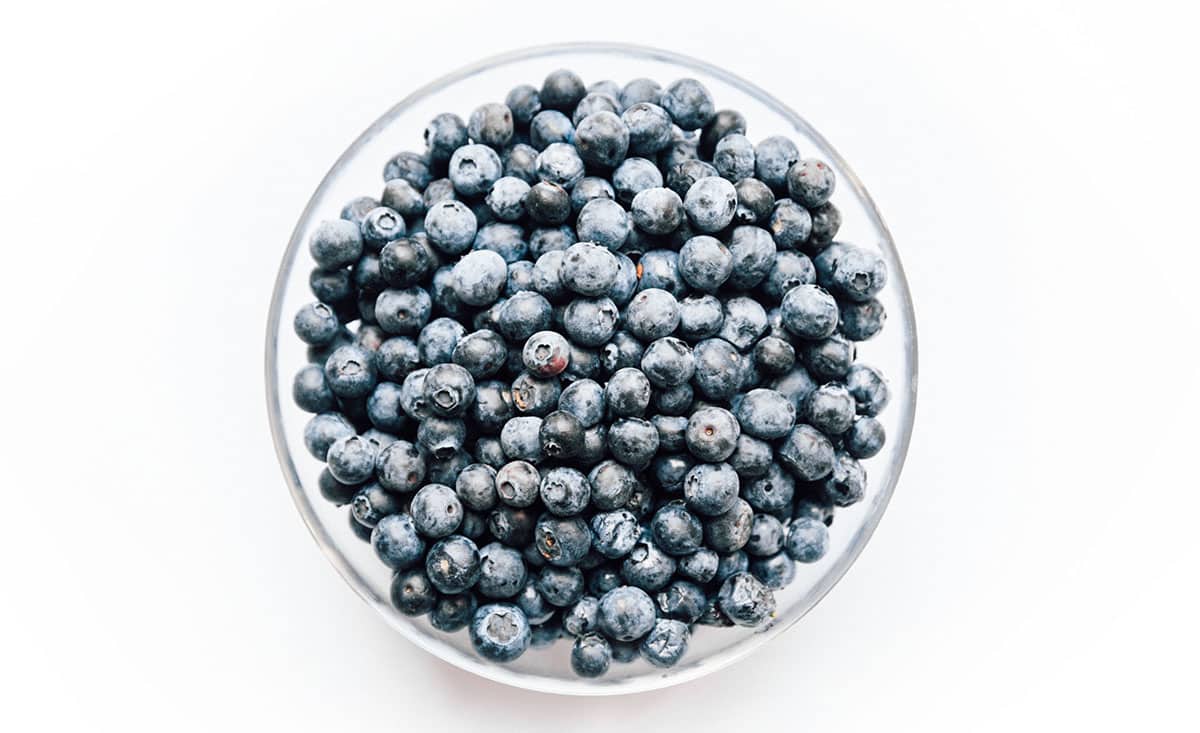
Blueberry Nutrition Information
As with most blue fruits, blueberries are high in anthocyanin and antioxidants! Here is the nutrition information for blueberries (per 1 cup (148 g) fresh blueberries).
Calories: 85 calories
Blueberries are relatively low in calories, making them a healthy snack.
Carbohydrates: 21g
As with most fruits, blueberries are no low in carbohydrates.
Fiber: 4g
Blueberries are a good source of fiber, and have 14% of your Daily Value (DV). This means that blueberries can can make you to feel full, helping you to eat less and lose weight.
Protein: 1g
As with most fruits, blueberries are not high in protein.
Fat: 0g
As with most fruits, blueberries are naturally fat-free.
36% Daily Value of Vitamin K
Blueberries are high in Vitamin K, a fat-soluble vitamin that helps maintain healthy blood clotting and bone synthesis.
24% Daily Value of Vitamin C
Blueberries are an excellent source of Vitamin C. This antioxidant helps maintain your immune system as well as helps to create collagen.
Are Blueberries Keto Friendly?
Blueberries are not considered suitable for ketogenic diets. According to the United States Department of Agriculture (USDA), a ½ cup serving of blueberries contains 10 grams of carbs (7g net carbs once fiber is factored out).
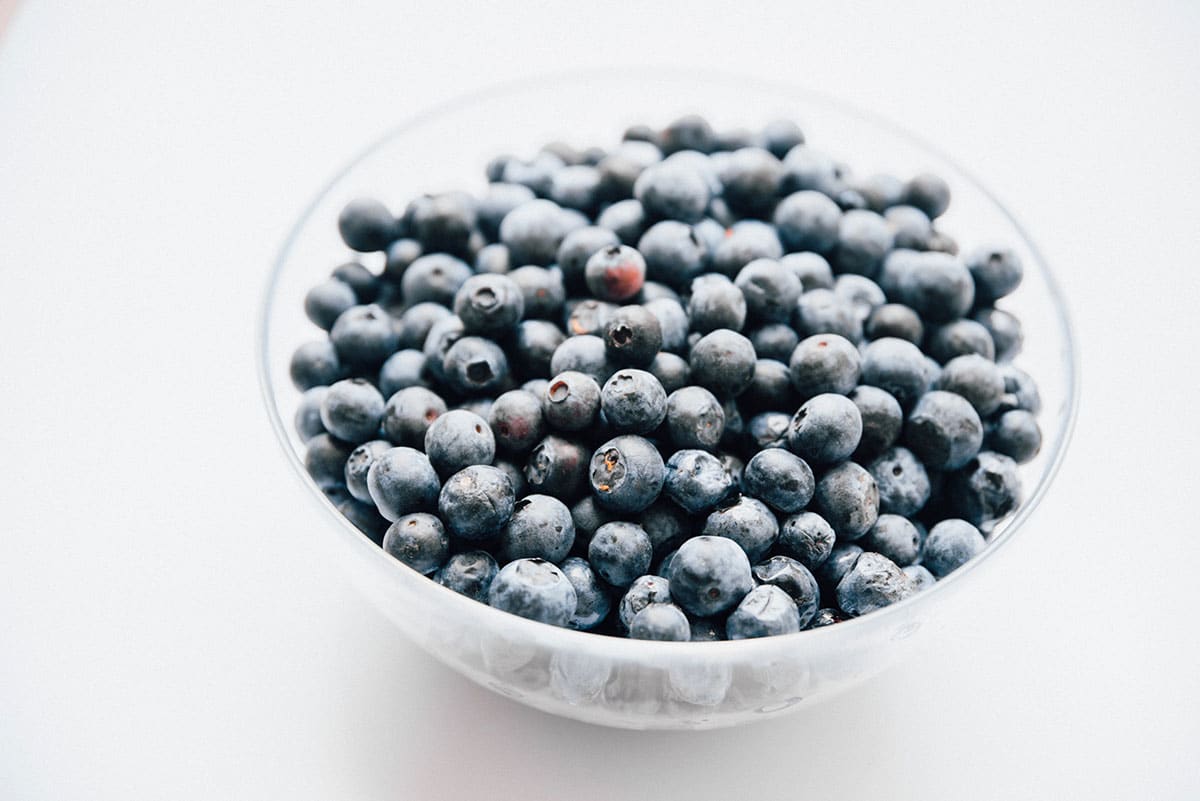
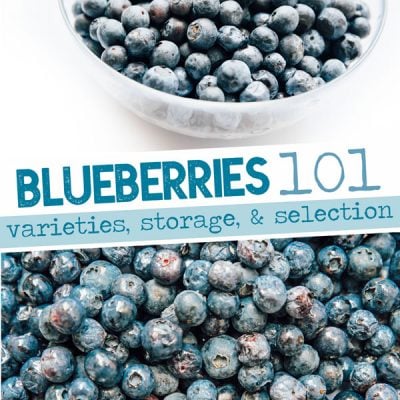


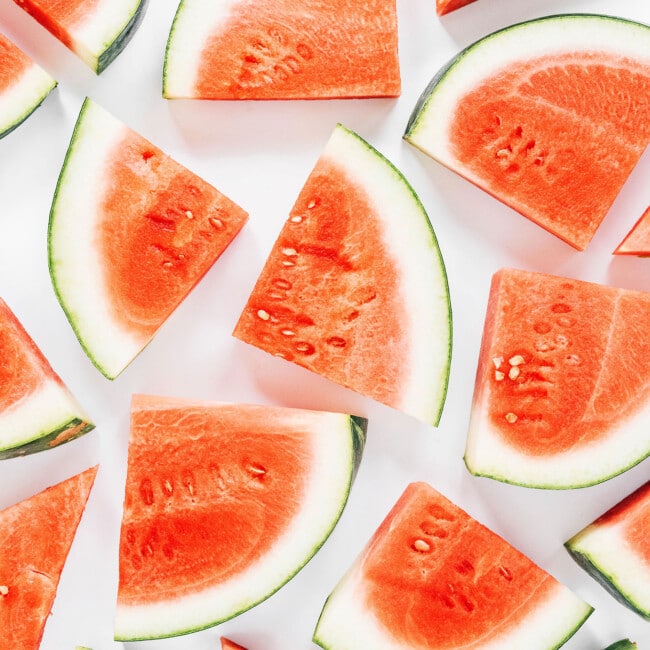

Leave a Comment